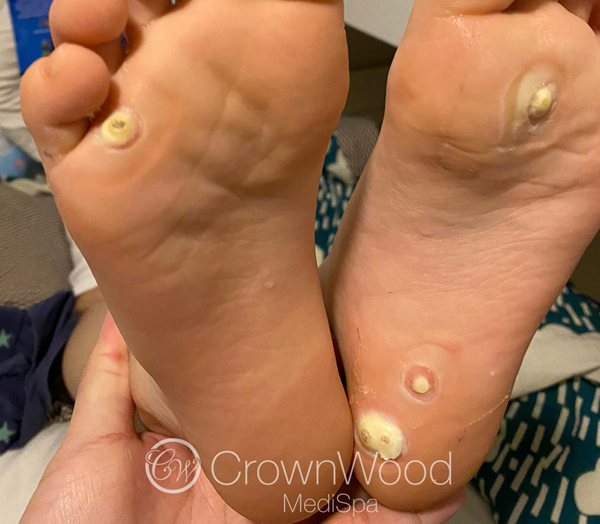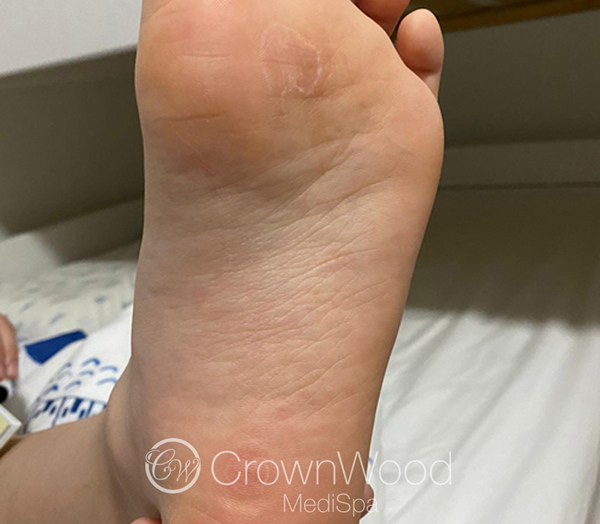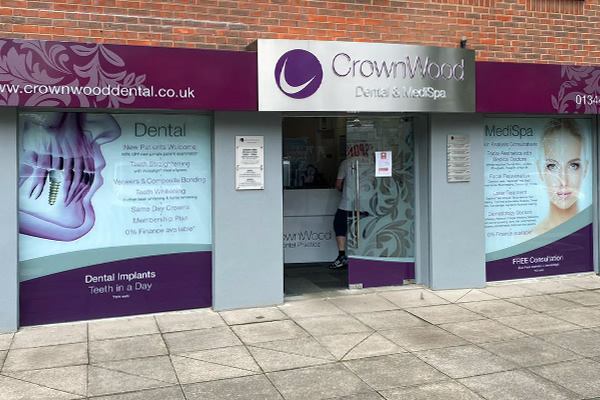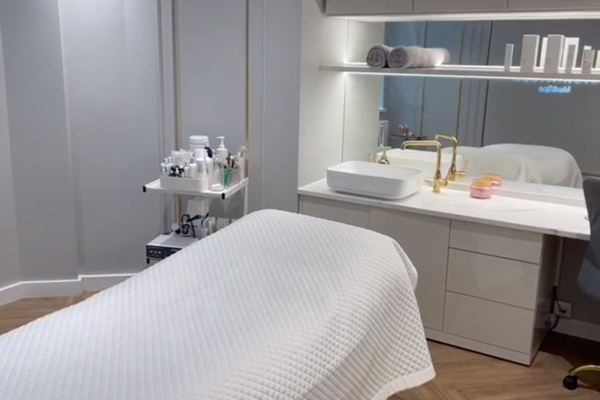Dermatologist in Bracknell, Berkshire
Benefit from expert skin treatment by our GMC approved Consultant Dermatologist, Dr Chun-Man Lee MBBS MRCP(UK) SCE(Derm) MSc CESR.
No more long waits of up to 18 months in the NHS for a consultation.

Choose us for dermatology near you and benefit from:
- Highly skilled private dermatologist with 14+ years experience
- Our skin clinic has 100+ 5* patient reviews via Google
- Safe, effective treatment of a wide range of skin conditions
- Private healthcare service covered by medical insurance
- The best dermatology treatment and service at great prices
- Treatment using the latest advanced technology
- Comfortable and friendly environment
What is a Dermatologist?
Dermatologists are specialist physicians who diagnose and treat diseases of the skin, hair and nails. All dermatologists are medically qualified, and undertake the same university training as other doctors.
A dermatologist is trained to carry out a huge number of procedures, such as skin grafts, removing lesions, and other kinds of skin surgery. They have extensive knowledge and expertise in all areas of basic sciences, including biochemistry, microbiology, pathology, physiology, and endocrinology.
After qualifying, they spend at least 4 years training in general (internal) medicine, to get experience of other medical specialties (e.g. emergency medicine, rheumatology, cardiology). During this time, dermatologists must pass the exams to become Members of the Royal College of Physicians (MRCP).
Following MRCP, trainees are required to pass the final Speciality Certificate Exam (SCE) for board certification, which may either take the form of CCT (4 years) or CESR (6+ years, variable). Many may then go onto the optional higher level training for research which leads to an MSc or PhD degree and/or to develop expertise in one of the dermatological subspecialties (e.g. dermatological surgery, paediatric dermatology, contact allergy, photobiology).
Since many skin conditions are often associated with other internal issues, dermatologists must also be familiar with all other medical specialities. A dermatologist is trained to carry out a huge number of procedures, such as skin grafts, removing lesions, and other kinds of skin surgery.
Our GMC approved Consultant Dermatologist Dr Lee has completed a Speciality Certificate Exam, bears a Masters Degree in Aesthetic Medicine in research for Skin Ageing at the University of Manchester, as well as being the current clinical lead in Skin Allergy Service and Patch Testing at Frimley Park Hospital NHS Foundation Trust.
He is currently Principle Investigator and sub-investigators in two international drug trials, exploring novel high cost therapeutics for Psoriasis in the NHS, as well as Head of biological therapy for inflammatory skin diseases at Frimley Park Hospital.
Dr Lee has performed hundreds of dermatalogy treatments for patients from all parts of Berkhire including Bracknell, Wokingham, Reading and Newbury.
Example of wart treatment before and after


Why might I need to see a skin specialist?
During our daily life, our skin goes through a lot. Whether it’s hormonal breakouts in teenage years or rough, dry skin from exposure to the sun over time, even minor skin conditions can have a huge impact on your self-confidence and comfort.
The skin is the largest organ of the body. Part of its job is to create a barrier against any injury and bacteria that could cause you harm. The appearance of your skin is often the most obvious way to see if something is wrong inside.
At some point or another during your life, from infancy to old age, you will experience some type of skin disease. In fact, a sixth of all visits to the family GP tends to involve a skin condition.
Dermatologists treat more than 3,000 different kinds of skin conditions. Some of the most common diseases they are able to diagnose and treat include:
- Skin condition
-
Melanoma skin cancer is the 5th most common cancer in the UK. According to Cancer Research UK, it affected almost 16,000 people out of every 100,000 in 2015 alone, making up 4% of all new cancer diagnoses.
It is most commonly caused by exposure to UV rays from the sun over time and is usually diagnosed by a dermatologist after a patient notices an abnormality in a mole. Most patients with malignant melanoma will be treated with surgery, radiotherapy, and often chemotherapy too.
If you're worried about your moles give us a call and book Skin Cancer Screening.
- • 30 minute examination including manual lesion mapping with dermatoscopy.
- • CryoPEN treatment available on the spot for any pre-cancerous, superficial skin lesions (Subject to additional fee. T&Cs apply*).
- • Conducted by the most experienced GMC approved Consultant Dermatologist - Dr Benjamin (Chun-Man) Lee MBBS MRCP Derm(UK) MSc.
- • Clinical and Dermatoscopic pictures will be taken of any lesion at your discretion, uploaded to your mobile device on the day. Please ensure you have a device with you on the day.
*Each session is charged based on a single lesion or multiple lesions amounting to a surface area no bigger than 2cm square.
-
Skin, nails and hair can all become infected by fungal infections, usually caused by a group of yeasts known as "candida". Though common, these are usually fairly mild and can be treated quite easily.
However, people with reduced immunity may experience more serious symptoms from a fungal infection so it is important that they visit a dermatology clinic as soon as possible.
-
These are contagious but unharmful skin growths which can appear when a virus affects the surface layer of your skin. They often go away themselves after a while, but a dermatologist can help to remove a wart that keeps coming back.
-
This condition is an inflammation of the skin which typically leads to an itchy rash and swelling in the affected area. This can be in the form of contact dermatitis, seborrheic dermatitis, and atopic dermatitis. Each of these conditions affect the skin differently, so be sure to consult a dermatologist about your symptoms.
Hand dermatitis can also be caused by contact with certain detergents and chemicals.
-
Many people do not realise that a dermatologist is also trained to deal with hair disorders too, such as hair loss. There are a number of things that can cause hair loss, from genetics to conditions like alopecia.
Your dermatologist may be able to find the cause of your hair loss and treat the underlying condition.
-
Acne is a disease which affects the oil glands in the skin and it is one of the most common skin diseases in the world. Almost everyone will suffer from acne at some point in their lives, usually as teenagers or young adults.
There are a huge range of causes which result in various types of pimples and spots. Acne can often result in depression, low self-esteem, and scarring, so it is important that you see a dermatologist if it is becoming severe.
You should arrange to see a dermatologist as soon as you notice symptoms of a skin disease, or if the current treatment for an ongoing problem becomes ineffective. They will be able to offer you a number of different ways of curing your condition or managing it.
To book a dermatology consultation call 01344 482 882 or fill in our online form
Please note: If a private prescription is required the cost will be £35, you may be required to pay additional charges at the pharmacy for the medication.


Meet our highly qualified and experienced dermatologist
Dr Benjamin (Chun-Man) Lee MBBS MRCP(UK) SCE(Derm) MSc CESR
GMC Reference No. 6147622
Dr Chun-Man Lee is a GMC approved Consultant Dermatologist in Frimley Health, NHS Foundation Trust, lead physician in cutaneous allergy, paediatric Dermatology, and head of Biological Therapy for inflammatory skin diseases at Frimley Park Hospital.
Dr Lee has over 14 years of clinical experience in medical specialities and primary healthcare and at least 6 years in Dermatology. He has been awarded an honorary role by the University of Surrey, where he gives lectures and sets assessments for the Faculty of Medical Science.
He is also a passionate researcher of skin ageing and has many articles published in highly regarded peer-reviewed journals.
Treatment Summary (Cryotherapy for skin lesions/blemishes)
30 mins inc consultation |
Immediately estimated |
Rarely |
10 days |
Dependent on size |
Approx 2 - 3 days* |
1 month* |
Redness, swelling, blistering* |
Permanent |
*Results may vary from person to person.
Dermatologist prices
| Treatment | Cost (from) |
|---|---|
| Skin Analysis CONSULTATION with Therapist - 30mins | FREE |
| Allergy and Skin CONSULTATION (inc. papercopy of clinical report by Specialist on the day) 30mins | £250 |
| Follow-up (review) appointment with Dermatologist (within 6 months for same condition and issue) | £135 |
| Telephone Follow-up (review/query/email) (within 6 months for same condition or issue) | £85 |
| Private Prescription (excluding Pharmacy costs, ie you may need to pay an additional charge for the medication) | £35 |
| Cryotherapy - Small Skin Lesion removal per treatment (Initial consultation £250) | £80 |
| Cryotherapy - Larger than 1cm Lesion removal per treatment (Initial consultation £250) | £100 |
| Cryotherapy - Follow up consultation for treatment of new lesions (within 6 months) | £250 + lesion cost |
| Cryotherapy - Free of charge touch ups of treated lesions (within 3 months) | FREE |
Please note that skin lesions that bear hair (such as pigmented mole or skin coloured mole with hair follicles) will not respond to Cryotherapy. Our GMC approved Consultant Dermatologist Dr Chun-Man Lee will discuss options with you at your consultation.
"Thank you so much for all the help and support you have given me over the years in regards to my skin. The confidence I felt on my wedding day was purely down to your advice and guidance. I can not thank you enough for being such a big part in making my wedding day the best day of my life and for helping me feel in control of my psoriasis." - Laura (Patient of Dr Ben Lee) -
Our state-of-the-art Berkshire dermatology clinic



10 Crown Row, Bracknell, Berkshire, RG12 0TH
Ample FREE parking available
Our latest dermatologist reviews via Google Business
"Amazing! Dermatologist was precise. He told me exactly my condition and prescribed exactly the treatment. 20 years been trying to sort with the NHS , this is immediate Result in 1 hour."

"..I also had a mole check with the dermatologist, Dr Ben Lee, and highly recommend him too. It was a thorough consultation, he explained so much about my skin, moles, freckles and sun damage and gave me a real wake up call about sun exposure. I will be going back to him annually for this check up.."

